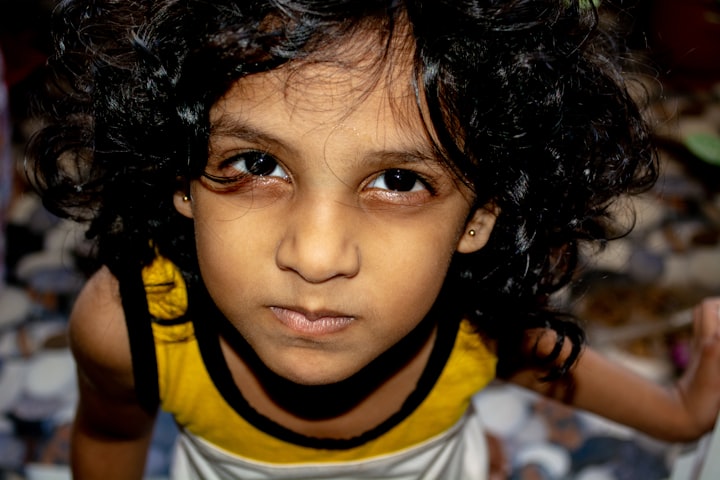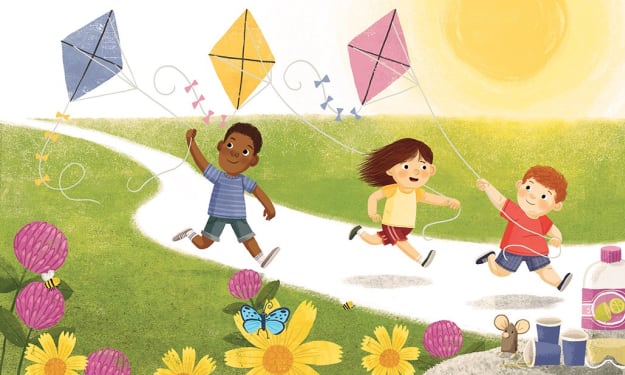What to Do When a Child Uses Hurtful Words
How to recognize negative behavior

If you’ve noticed some negative shifts in your kid's behavior. They've probably also started using some really hurtful mean words. And some of them increase hitting and tantrums. You have definitely entered the power struggle stage. They’ve started saying things like I don’t like you and you’re mean and you’re not my friend. Sometimes they’ll even say I hope you die.
One tactic I’ve tried is to say, ‘I can tell you feel angry about ‘X’, but we don’t hurt each other in this family, and no matter what we always love each other. When you say you don’t love me, I think you’re really trying to say that you’re angry with me. I will always love you. Even if I get angry with you or if you’re angry with me. Let’s talk about why you’re angry and make this better.’
Occasionally you will see the fruits of this at the moment. But more often we can work through that conversation effectively after the emotions have passed. You struggle with how to demonstrate that those words and actions will not be accepted.
So first, it's important to control your anger, you should try translating their feelings into appropriate words, and modeling how you would like them to better share their feelings. At the same time, you’re letting them know that hurtful words are not acceptable.
If you’re also noticing that when they are really angry, they are just not in a place to be coached or corrected at all. And that’s common, They just need a chance to calm down most of the time. In those moments when their emotions are really keyed up, unfortunately, nothing is going to get in. And if anything, as you’ve already noticed, they just get angrier. So if you think about when we as adults are angry at someone, and anger is actually hurt turned outward, we feel hurt. And so we kind of lash back outward, that’s what anger is. We aren’t ready to hear how we should have behaved. But we can hear, ‘I understand you’re feeling angry with me about something.’
So with a child, we might say I want to make it better, but it’s not okay to call me names. Now, you know, hopefully, adults aren’t calling each other names, right? I mean, sometimes they do. But hopefully, by the time they’re done with childhood, we've learned that that is just not acceptable and we have a much better way of communicating our anger to each other. But with an adult, you might say something like what you just said really hurt my feelings and we aren’t going to get anywhere by hurting each other. Something like that can really appeal to each other that way.
I think it’s important to share from the perspective of a preschooler, it helps us, parents, to take a step back, realize the message behind the hurt, and can help to keep us calmer and work more from a place of calm and coaching, than feeling personally hurt by our kids’ words and behaviors. This is the child’s way of sharing that they feel hurt, and they don’t really mean anything they said. So they just need our help to find a better way. And it’ll take a little bit of time and a little bit of coaching. But they will get there, the more you’re able to see the emotion behind it, and not take the words personally, the better you’re going to become in the moment and help coach them through the process so that they can become much better at sharing these types of feelings in the future.
When a child knows something bothers us, it is what they will continue to use when they’re angry. Because they’re going to lash out and try to get revenge to try to hurt us. So it can ratchet it up more and more, the words will get more hurtful because they know what the buttons are. They do this to take back power. When someone is feeling hurt, they try to hurt back, especially kids, because they aren’t seeing our understanding, the reasoning behind what’s happening, the rules, the expectations of what’s being asked of them. They’re just seeing their hurt and want to hurt you back.
It’s revenge-seeking behavior and as I mentioned, if they get a reaction, it also can become power-seeking. So then you’ve got two issues there -the two reasons behind the misbehavior. But just know that this is a child simply saying I’m hurt and I want you to feel and understand it. You want to remind yourself it’s not personal and they don’t mean it. The second thing is to also understand what it means to be a preschooler and their understanding of the world as far as death and dying. Kids don’t understand the permanence of death. It’s more like a cartoon to them. So you want to think of coyote who is constantly popping back up after getting blown up, falling off of cliffs, getting flattened, and getting run over by a boulder or a truck driving by. That’s how kids think of death. But it’s the worst word they can come up with sometimes because they know adults take it so seriously. But to a child, it’s not a permanent state. They’re grasping at whatever they can to get our attention.
Also, when my kids called me mean on occasion, I would just let them know that my job isn’t to be their friend or be agreeable. My job is to help them grow up to reach their potential or to be responsible, well mannered, whatever the issue was we were dealing with at that moment, it’s not an insult, it just is. I mean, we aren’t doing our jobs if our kids don’t think we’re mean from time to time. So I am going to get into those tips on working with the revenge-seeking behavior and solutions, as well as some additional ideas.
What we can do as parents
The first thing you want to do is decipher the reason for the misbehavior. I can always tell that revenge is the main reason that this behavior starts up. Again, if the behavior gets a big reaction, there could be some power-seeking behavior going on as well. However, since revenge is the main reason for the outbursts, in the beginning, I’m going to give some tips on fixing this behavior. So revenge happens when a child is not feeling heard, understood, or feels wrong somehow. So first, we want to avoid punishment and retaliation at all costs. It’s important to remember that in these cases, your child is acting out of hurt. While we as adults may also feel hurt by their behavior, it is our job to stop the cycle, step back, slow down, show our kids how to deal with feelings of hurt and anger in better ways. If we just go to retaliation and punishment, we’re only going to make that feeling of hurt, drive deeper, it’s going to increase the revenge, increase the behavior. And so we’re into a downward cycle. If your child is ready to talk right away, great, go through these steps right away. If your child is not ready to talk about it right away, they just need some time to calm down, you’re going to give them that time to calm down.
When your child is calm enough and ready to talk about it, whether it’s right after the incident, or you need to wait 5–10 minutes, 15 minutes for them to calm down and come back. These are the steps you’re going to go through. You’re going to coach and talk with your child, you want to say something like, ‘Your behavior tells me that you’re feeling hurt. Can we talk about that?’, then you want to really listen to what your child has to share about how he or she is feeling, and while you’re helping them get in and share their feelings, you’re going to use reflective listening. Reflective listening is repeating back what you heard. Now it can feel really silly at first if you aren’t used to using it. So well, I’m going to use this example. So let’s say your child says something like I’m mad because you said you were going to give me strawberries for lunch and you gave me grapes. I hate grapes. So you would say something like you wanted strawberries instead of grapes, then your child would affirm that yes, that you understood what they’re saying. This is the first step that they understand that you understood what they said, then you get deeper into it because now there’s an agreement about why the upset happened. You felt like I didn’t care what you wanted. When I gave you the grapes, you’re letting your child know that you understand their feelings behind it. Now you may be on completely 100% or you might be slightly off and they’ll correct you. But this way, you’re really getting down to the reasons behind they’re feeling hurt and upset, then you want to make amends. If there’s anything you did that you need to make amends for, you can do it here. Apologize and let your child know it was not your intention.
I’m sorry, I made you feel like I don’t care about what you want. That was not my intention at all. I do care. I thought we had more strawberries, but they were all gone. And I thought that you liked grapes as your second favorite. So I gave you those.
Then you want to connect. You want to make sure you both connect and understand each other. You’re letting your child know that you understand where their hurt is coming from and that they understand that it wasn’t intentional. So you’re connecting both ways. Then you’re going to coach after you reconnect. So you’re both understanding each other. Now that those hurt feelings are dissolved. Now you’re going to coach about how your child can handle it differently the next time your child yelled or shouted or threw something is now when you can talk about how that’s not how we handle hurt feelings. You want to tell your child it’s okay to have hurt feelings, that we all have hurt feelings, and that you welcome your child coming to you to tell you when he or she feels like you don’t care about what they want, or when you did something that hurt their feelings, and that you want them to come to you and tell you about it so that you can talk it out, then you want to have them practice again. The coaching really helps them work to recognize the emotions so that they can then start to verbalize them while they’re feeling upset, they’ll start to get much better at that.
About the Creator
Blessing Akpan
I am a photographer of thoughts, let me capture your soul.






Comments
There are no comments for this story
Be the first to respond and start the conversation.